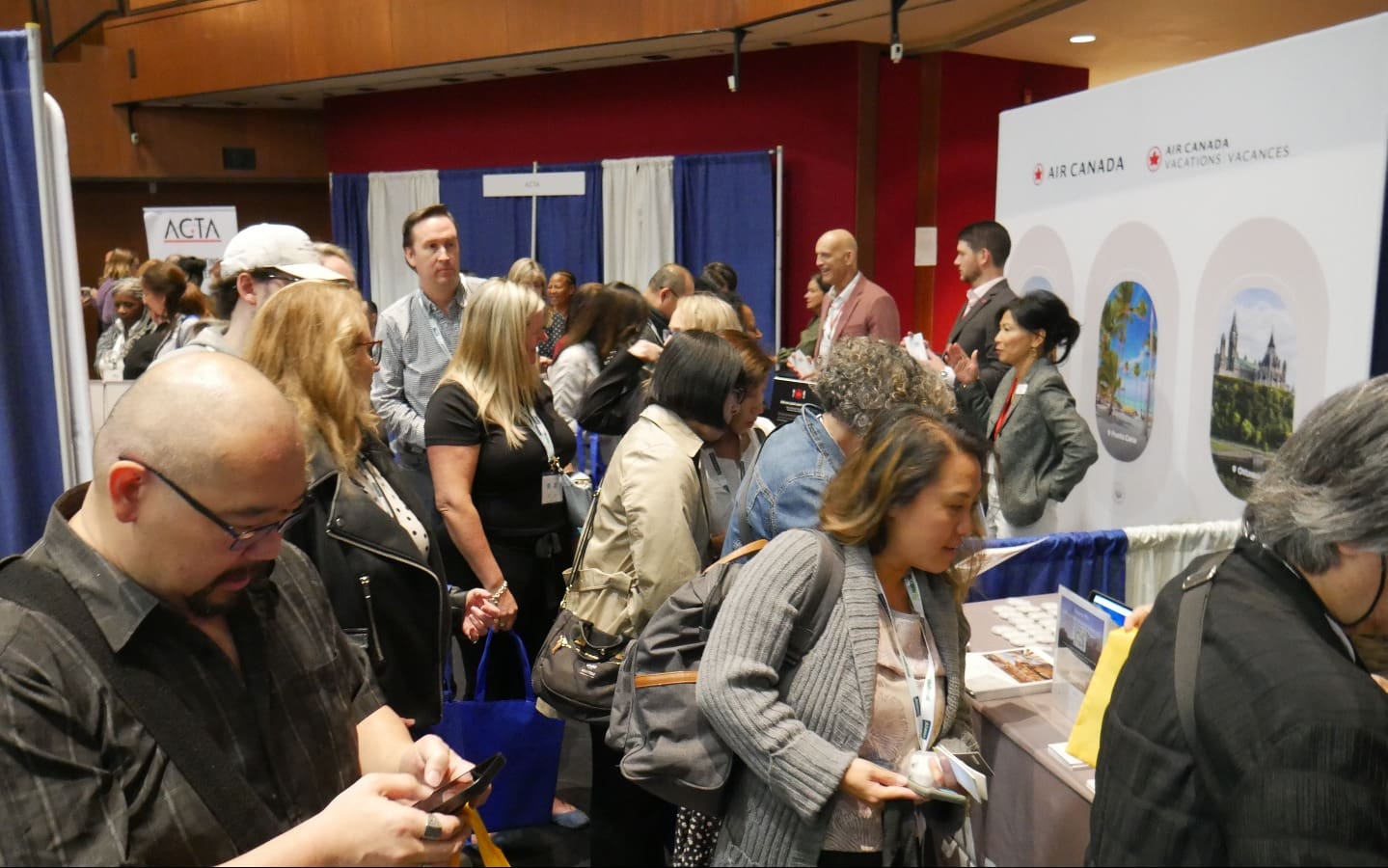Takeaways from the ACTA Western Canada Travel Industry Summit
The travel business is in healthy condition, but the free-spending, post-pandemic “revenge travel” days of 2023 are over now, and it has been back to work as normal for travel retailers in 2024, said ACTA president Wendy Paradis recently in Vancouver.
Paradis kicked off the Vancouver edition of the ACTA Western Canada Travel Industry Summit with an encouraging but realistic outlook for the assembled agents, who numbered just over 260. They had converged on the River Rock Casino Resort in Richmond, just south of Vancouver’s city limits, for the event.
“It’s back to business as normal. The money is not flowing into our pockets like last year, and now we really have to hustle, strategize and have good business plans,” said the ACTA chief. “The pent-up demand, while still there, is not like it was in 2023,” She was referring to a time last year when booking volumes were still below 2019 levels, but prices were elevated.
Paradis noted that the future is bright for the travel business and the global outlook for the travel sector is strong for years to come. Agents should expect consumer demand for travel to continue to be robust, and for suppliers to meet this demand with increases in product capacity around the world. As well, business travel will continue to rebound, said Paradis, confirming that this sector has been on a slower recovery curve than leisure travel.

From a general economic perspective, the outlook is also optimistic, says ACTA, with moderate but stable economic growth forecast for the nation, plus good consumer confidence and a rise in disposable income as employment and wages remain steady.
“As travel professionals, all of that is really important news for us, as we need our clients to have disposable income to be able to travel,” said Paradis.
Paradis spoke for the room in expressing relief for the averted strike by Air Canada, but also noted that more labour contracts will be up for renewal in the next two years, and that agents “should be prepared for more possible disruptions” in the near future.
Potential disruptions
More of those include fluctuations in the value of the Canadian dollar, U.S. economic conditions, geopolitical factors, fuel prices and more. “We need to watch the U.S., it is our major trading partner and we are really tied to their economy. So they need to do well for many of us to do well. And of course we have this wild election that is currently underway, so it really benefits us to see stability south of the border.”
In response to these potential shifts, Paradis emphasized that “We need to ensure that we are resilient and preparing for these possible disruptions,” she said.
But these kinds of uncertainties in an uncertain world also support the case for using a travel advisor to plan trips, said Paradis. One of the best bits of news for the assembled agents was that fully 85% of luxury travellers view travel advisors as the best way to book personalized luxury travel.

Some more specific travel trends were identified during the summit. These include sustainable and eco-friendly travel, emerging destinations and experiences, bleisure travel or “workations,” and the rise of remote work, with all the travel possibilities that implies, to name some.
AI for travel advisors
Michael Drever, founder and CEO of BranchUp, was one of the keynote speakers during the Summit. He led a presentation on how AI (artificial intelligence) can be of service in the travel industry, and emphasized that a greater understanding of AI would help agents overcome fears of the technology.
“AI is a marketing tool that can be used to generate leads and build rapport with customers,” said Drever. The process of building trust is the same, regardless of the tools used, he said.
Even while questioning the acronym – is it “automated intelligence?” or maybe “intelligent automation?” – he assured agents that he could solve their anxieties about AI, and address the essential question: where do agents fit in the use of this technology?
To do so, he suggested that AI should be regarded like any other digital marketing tool, including email, websites, a digital database and the essential social media platforms. They’re all marketing tools, used to generate leads. And the more you stay in touch with customers, the more leads that will be generated.

That’s where AI comes into the picture. Drever probably surprised some agents when he introduced his digital doppelganger, or “digital twin.”
He described how AI can be used to create the digital twin, who can then be put to work on certain time consuming tasks. For example, the digital double can be employed in follow-up exchanges with clients who have just returned from holidays.
Drever says his double will use a script to ask for trip feedbacks, including any complaints or problems first, and then start enquiries about future trips plans, and even make suggestions if required.
“A digital twin can do a lot of your customer service,” said Drever. “It’s my prediction that we’re all going to have digital twins eventually.”
A very busy trade show in the afternoon was populated by nearly 80 exhibitor booths, with a total of 108 supplier reps meeting agents. The trade show was followed by a panel discussion on how to navigate future business opportunities, called “Strategies for Thriving Travel Advisors.” And a cocktail reception at the end of the afternoon provided opportunities for networking and sharing thoughts on the day’s proceedings.

















